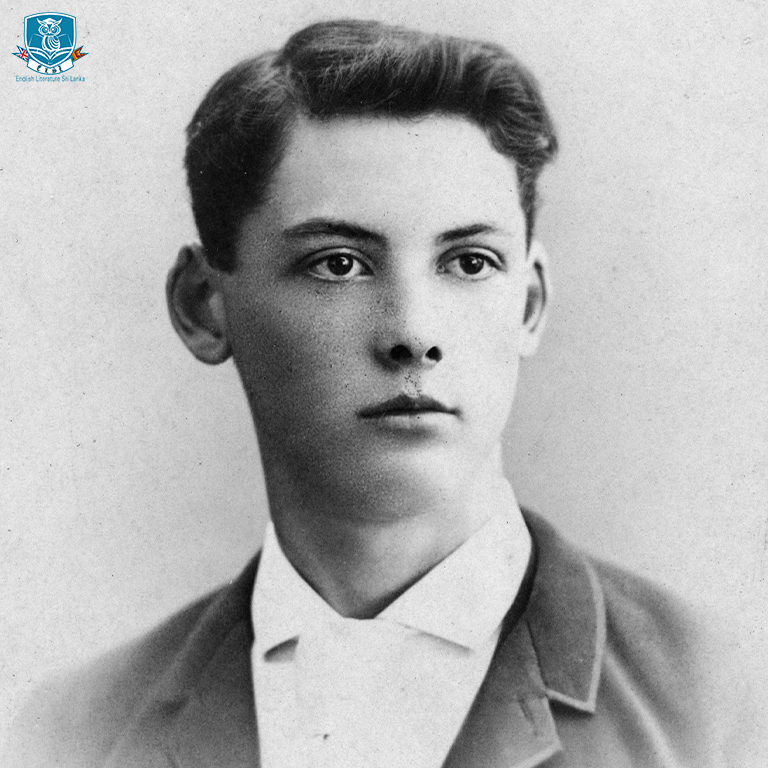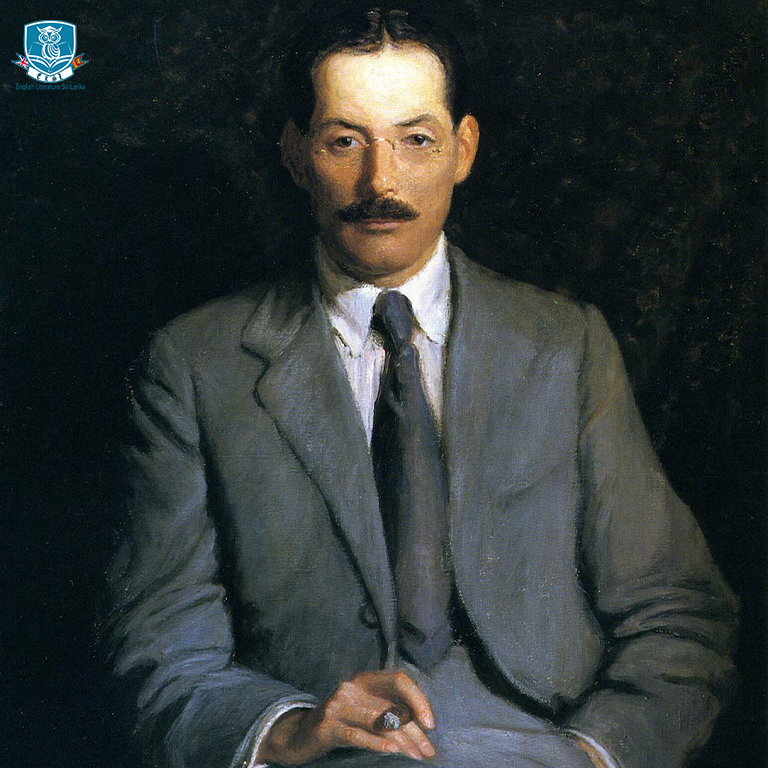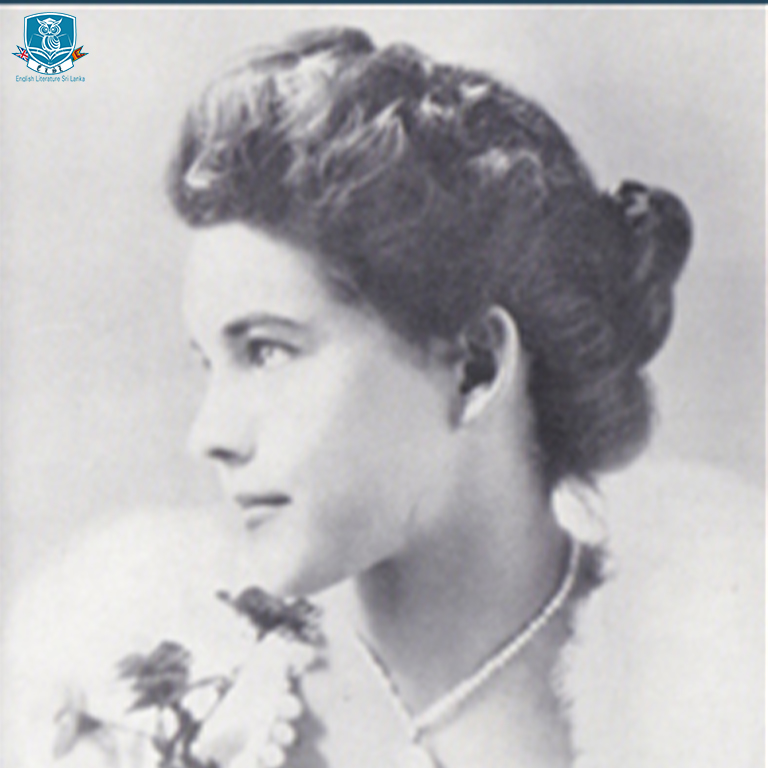Analysis of the poem "Richard Cory" by Edwin Arlington Robinson
Stanza 03
Richard Cory - Edwin Arlington Robinson
Whenever Richard Cory went down town,
We people on the pavement looked at him:
He was a gentleman from sole to crown,
Clean favored, and imperially slim.
And he was always quietly arrayed,
And he was always human when he talked;
But still he fluttered pulses when he said,
“Good-morning,” and he glittered when he walked.
And he was rich—yes, richer than a king—
And admirably schooled in every grace:
In fine, we thought that he was everything
To make us wish that we were in his place.
So on we worked, and waited for the light,
And went without the meat, and cursed the bread;
And Richard Cory, one calm summer night,
Went home and put a bullet through his head.
Edwin Arlington Robinson
Edwin Arlington Robinson is an American Modernist poet who contributed to world Literature between the late 19th and early 20th centuries. Once analyzed, his story of life concludes to be dreary and unhappy. Since his parents expected a female child, they were not so happy to accept him to the family, and even rejected to name him. He hated his name Edwin as it was given by a random stranger and Arlington, as it is the name of a city. The pessimistic view he had during the early years of his life makes most of his literary works to be downbeat and dark.
His Eldest brother Dean Robinson becomes a laudanum addict, the love of his life, Emma Löehen is married by his middle brother, Herman Robinson who ultimately ends up as a failure in his business; an alcoholic who is indifferent to his wife and children who dies penniless of tuberculosis.

"Richard Cory"
The poem Richard Cory is based on the thoughts of Herman Robinson’s wife, Emma on her husband. It is composed during the panic of 1893 when the United States was suffering a severe economic depression, which is the very reason behind the tragic end of E.A Robinson’s lover’s husband. The “bread” functions as an allusion to the economic depression during which many survived by eating old bread.
‘Richard Cory’ is a based on the style of prose fiction as the content is fictitious and is revealed using vernacular language. At the same time, it functions as a lyric poetry as it is a formal poem in the first person narration which expresses ones tempestuous emotions.
The poem revolves around the one and only significant, masculine character called Richard Cory. The narrative voice casually exaggerates his judgement based on the appearance which ultimately concludes be a mere prejudice.
Richard Cory’ is a structured poem of four quartans. It is dominated by end-stops which is common in death/suicide poems. The narrator is a singular character who dwells on the pavement of ‘downtown’, yet projects a collective voice and opinion of the general working poor.



Richard Cory - Analysis
Stanza Three
Line one
And he was rich—yes, richer than a king—[a]
- The coordinating conjunction links the stanza to the previous syndeton.
- The conceptual repetition of Cory’s rich status contrasts him with the speaker who inhabits the pavement.
- The em dashes in the line remind the reader of the vernacular language of the poem. At the same time, they re-emphasize Richard Cory’s elevated materialistic possessions.
- The comparative style of the line reminds the reader about the rich standards of Cory in a hyperbolic manner.
Line two
And admirably schooled in every grace:[b]
- The anaphora re-appears in the stanza – and it indicates the peculiar interest and the excitement the ‘people on the pavement’ has on the materialistic prerogatives, the tangible as well as the abstract privileges Richard Cory experiences.
- Grace relates to the charming and attractive features of the recipient, and it seems his character is abundant of such.
- Regardless of the exaggerative account provided by the narrator; it should not be forgotten that the ‘people on the pavement’ judged Richard Cory based on the outer appearance.
Line three
In fine, we thought that he was everything[a]
- In fine is a synonym for ‘in short’ or ‘to sum up’.
- The caesura contributes to add emphasis to the figurative disappointment of the speaker as he has already come to a conclusion of the actuality of Richard Cory which is starkly different from his appearance.
- With the combination of the past tense and the word ‘thought’, the narrator reveals the contradiction between appearance and reality. The ‘people on the pavement’ ‘thought’ that Richard Cory ‘was everything’ but for some reason- they have now come to the realization that Cory is not what they expected him to be.
- This is the only line of the poem which does not end with a punctuation mark, and its meaning is extended to the next line.
Line four
To make us wish that we were in his place.[b]
- The final line of the stanza concludes why the ‘people on the pavement’ centralize their attention on Richard Cory. They aspire to be like Richard Cory, and they want to simulate his materialistic privileges.
- The subjunctive mood indicates the hope of the speaker to simulate the elevated standards and materialistic prerogatives of Richard Cory.
- ‘his place’ relates to the standards of Cory.
General outlook of stanza three
- Perfective aspect and the past tense still dominate the overall stanza suggesting that the judgements on Richard Cory are no longer valid in the present.
- There is no change in the rhyming scheme as it reveals the monotony of the atmosphere and the characters of the poem.
- The poet craftily handles punctuation marks to enliven the stanza and to add complexity to it.
Subscribe to our YouTube Channel to gain access to all the new video lessons.




